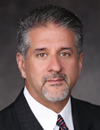
To Reserve or Not to Reserve? That Is the Question
By Richard Alfonso / Published August 2019

There are few individuals who will voluntarily vote to increase their monthly personal expenses for something that “may” need to be fixed or replaced in the future. With board members facing the additional pressure that their vote will also affect each of their neighbors’ budgets, one can immediately see how unpopular voting for reserves can be. The easy vote is to waive reserves—which every association can legally do if they follow the rules—turn the other cheek, and let someone else deal with the potential problem when it happens. Unfortunately waiving adequate reserves could be much more expensive in the long run and could make your community less attractive to financial institutions for future loan needs as well as to potential new buyers. The reality is that there is no easy answer.
Board members have a fiduciary responsibility to the homeowners that they serve. Yes, as a board member you are, in essence, a public servant for those who live in your community. They have voted for you to represent them and are “assuming” that you will do your job to the best of your ability to protect their investment and limit their monthly expenses. In short, change nothing, enhance my community, repair and replace what’s broken, but do not increase my maintenance fees. Unfortunately, the expectations of the homeowners and the reality of the situation are usually not aligned. Pay me now or pay me later, but eventually roofs will need to be replaced, concrete restoration will need to be done, buildings will need to be repainted, pools will need to be resurfaced, and hurricanes do happen.
At the core, developing a reserve budget should eliminate the need to special assess your homeowners, but there is no guarantee. Once an association has decided to properly fund reserves, the first and most important step is to have a professional complete a reserve study for the association. This study will be the association’s road map as to what it needs to do today to avoid issues tomorrow.
However, this is not cast in stone, and associations should realize that no one can accurately predict what a roof replacement “could” cost 20 years in the future, which is why reserve studies are “estimates” and updated annually if possible. The fundamental idea is to plan to the best of your ability and to ensure that your association is as prepared as possible for the normal maintenance and unexpected issues that all our homes may encounter.
However, should the association exercise its right to waive reserves, homeowners will be content with lower maintenance fees, although “artificial” in nature. Most homeowners do not wish to be bothered with reserving for a repair that they may or may not ever see, and here lies the human factor of why reserves are waived. We cannot fathom spending our hard-earned money on a project that someone else will enjoy, and we would prefer to be “assessed” for repairs as needed while living in the community. The reality is that there is nothing wrong with this philosophy if all homeowners can write a check for the full amounts as they are needed. Unfortunately, not all homeowners can, which leaves the association with no choice but to obtain financing from a financial institution, ultimately increasing the overall expense of the project. The East Coast of Florida is lined with beautiful high-rises, many of which have chosen to waive reserves for years, and today they are faced with maintenance projects, which require hundreds of thousands of dollars in special assessments to their owners.
In short, there is simply no easy answer, and whether your community chooses to reserve or not, eventually someone will need to pay.
Richard Alfonso
SVP, Business Development Officer, U.S. Century Bank
Richard Alfonso is SVP, Business Development Officer with U.S. Century Bank Business Banking Lending. Established in 2002, U.S. Century Bank is one of the largest community banks headquartered in Miami, the fifth largest minority-owned community bank in Florida, and 26th in the nation with assets surpassing $1 billion. USCB is dedicated to serving the financial needs of South Florida’s condominium and homeowner associations through a network of 11 banking center locations in Miami-Dade and Broward counties and through its online banking platform. For more information, call (305) 715-5181 or email richard.alfonso@uscentury.com.




